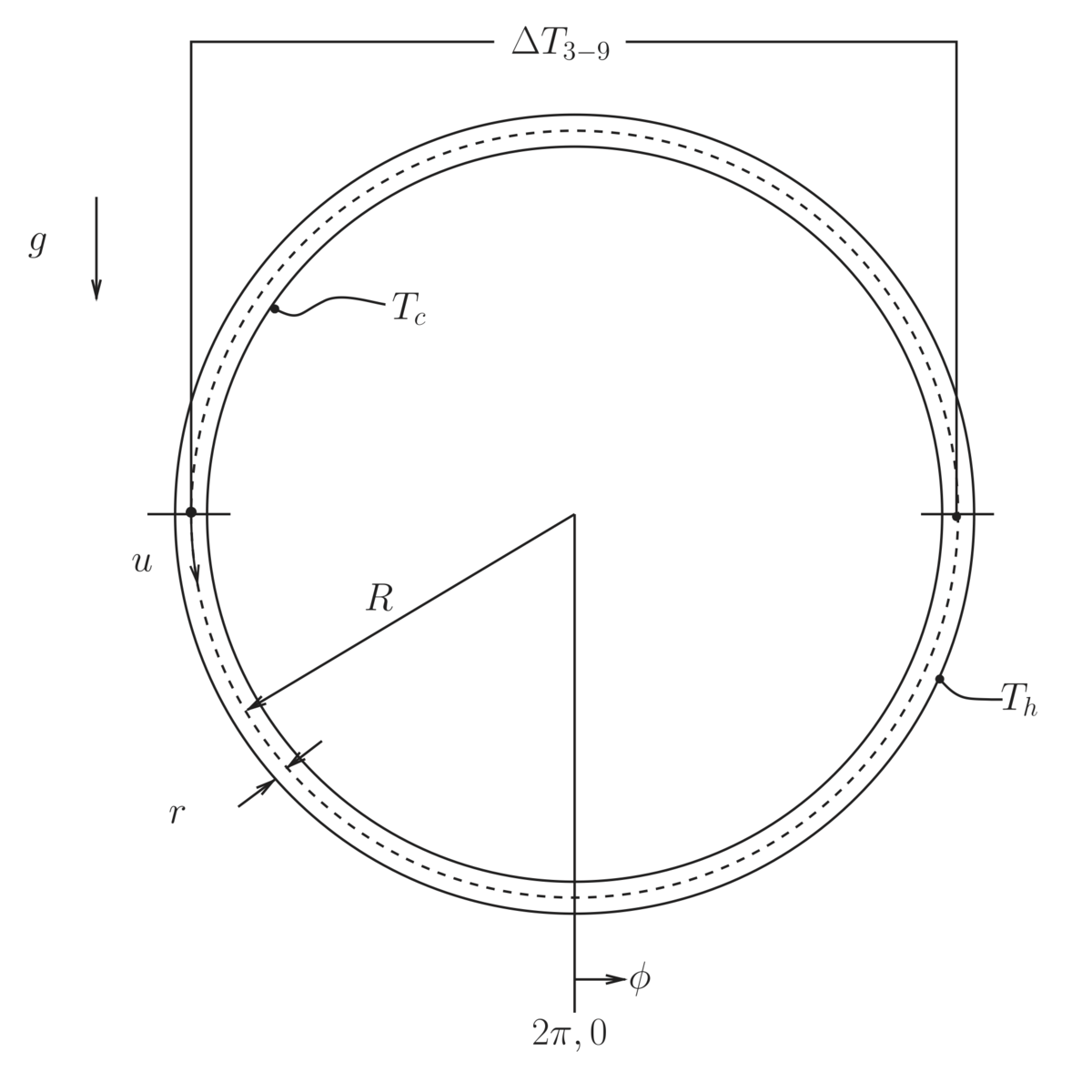Predicting flow reversals in a computational fluid dynamics simulated thermosyphon using data assimilation
A. J. Reagan, Y. Dubief, P. S. Dodds, and C. M. Danforth
PLoS ONE, 11, e0148134, 2016

Times cited: 11
Abstract:
A thermal convection loop is a annular chamber filled with water, heated on the bottom half and cooled on the top half. With sufficiently large forcing of heat, the direction of fluid flow in the loop oscillates chaotically, dynamics analogous to the Earth's weather. As is the case for state-of-the-art weather models, we only observe the statistics over a small region of state space, making prediction difficult. To overcome this challenge, data assimilation (DA) methods, and specifically ensemble methods, use the computational model itself to estimate the uncertainty of the model to optimally combine these observations into an initial condition for predicting the future state. Here, we build and verify four distinct DA methods, and then, we perform a twin model experiment with the computational fluid dynamics simulation of the loop using the Ensemble Transform Kalman Filter (ETKF) to assimilate observations and predict flow reversals. We show that using adaptively shaped localized covariance outperforms static localized covariance with the ETKF, and allows for the use of less observations in predicting flow reversals. We also show that a Dynamic Mode Decomposition (DMD) of the temperature and velocity fields recovers the low dimensional system underlying reversals, finding specific modes which together are predictive of reversal direction.
- This is the default HTML.
- You can replace it with your own.
- Include your own code without the HTML, Head, or Body tags.
BibTeX:
@article{reagan2016b,
author = {Reagan, A. J. and Dubief, Y. and Dodds, Peter Sheridan and C. M. Danforth, Christopher M.},
title = {Predicting flow reversals in a computational fluid dynamics simulated thermosyphon using data assimilation},
journal = {PLoS ONE},
year = {2016},
key = {fluids},
volume = {11},
number = {},
pages = {e0148134},
}